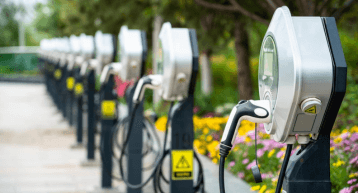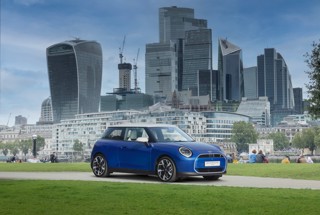The UK has been ranked the fifth best-prepared market in the world for the electric vehicle transition, according to EY’s latest EV Country Readiness Index.
China stays at number one, with Norway remaining second. The US has climbed four places to third, dislodging Sweden into fourth.
The UK’s rankings for supply (seventh to eighth) and regulation (third to fourth) both fell by one place year-on-year, but the nation’s overall ranking remains unchanged due to significant demand for new EVs and the 2030 ban on the sale of new ICE vehicles.
The EV Country Readiness Index covers both battery electric vehicles and plug-in-hybrids and assesses 20 key markets from around the world based on factors related to supply, demand and regulation, including analysing initiatives, targets and strategies.
Maria Bengtsson, UK electric vehicle lead at EY, said: “It’s encouraging that the UK remains one of the frontrunners in pursuit of an effective transition towards EV adoption, but there is still scope for significant improvement.
“As the clear global leader according to the Index, China has demonstrated the impact that appropriate regulation along with a localised supply chain and robust infrastructure implementation can have.
“There are lessons to be learned from that for the UK market, and the onus will continue to be on OEMs and the Government to collaborate on this challenge.”
She added potential delays to and a lack of clarity on the zero emissions vehicle (ZEV) mandate, along with uncertainty around plans and progress on the supply side are particular challenges the UK continues to navigate, while regulatory incentives have room for improvement, particularly when compared with legislation brought about in other competing markets.
EY said the UK’s penetration – BEV and PHEV sales as a percentage of total light vehicle sales – is expected to rise from 21% last year to 26% this year, which is above the average (19%) across all 20 markets.
However, this figure remains a long way behind the frontrunners Norway, who are forecast to see 81% EV penetration this year, with Sweden (53%) ranked second and Netherlands (35%) third.
The EY report highlights a marked challenge for the UK’s EV transition is a lack of fast charging infrastructure.
Although the sizes of the two markets are vastly different, the fact that China accounted for nearly 90% of global fast-charging stock in 2022, with the UK only accounting for 0.8%, highlights the magnitude of the challenge.
David Borland, UK & Ireland automotive leader for EY, added: “The resilient growth the UK has seen in new car registrations in recent months has been supported significantly by increasing EV sales.
“Indeed, the growing demand from consumers has played a key role in the UK retaining its status as a world leader for EV readiness, but challenges persist.
“Given the declining residual values of EVs and the difference between fleet and retail sales along with the ongoing infrastructure hurdles highlighted by this report, such as the UK trailing Europe for the number of charge points per EV, the longevity of strong demand and the positive impact it is having on the UK’s EV transition prospects appears uncertain.
“Going forward, it will be critical for not only the number of EV chargers in the UK, but the location and speed of charging infrastructure, to be prioritised. While there are positives, there is a long way to go for the UK to compete with the world’s leading EV markets, particularly in relation to supply and regulation.
“Specifically, regulatory incentives and support have room for improvement if the UK is to be seen as a top destination for attracting Foreign Direct Investment in the EV space.”
























Login to comment
Comments
No comments have been made yet.